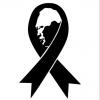Search the Community
Showing results for tags 'foreign'.
-
https://www.channelnewsasia.com/news/singapore/the-online-citizen-toc-foreign-interference-singapore-shanmugam-11940004 Shxt stirrers. Fair game. I suppose we have ppl all over with nothing between ears, 2 green eyes and itchy fingers on keyboards. Some paid somemore to create hatred and...
- 177 replies
-
- 6
-

-
- foreign
- interference
-
(and 1 more)
Tagged with:
-
中共万岁万万岁!
-
Anyone ever thought of getting a foreign wife? Or what you will say as a villager wife? What are you the thoughts and what hold you back from going for it? Anyone with the experience? Any thoughts or experience to share? BTW I am not focussing on those who marry foreign friends or colleag...
-
Salute to these men! Sediya! http://theunseensingapore.blogspot.sg/2013/10/the-unseen-singapore-10-sg-movers.html
-
https://www.asiaone.com/singapore/former-ntu-researcher-took-upskirt-photos-400-women?utm_source=editorialteam&utm_medium=notification Manpower minister wants more Super FT in SG In fact he is a super upskirter Maybe he is researching different materials for tropical climate...
- 35 replies
-
- 11
-

-

-
.png)
-

Do you know who you are? Try this the next time you get a parking ticket!
chitchatboy posted a blog entry in MyAutoBlog
From this video, one of the conclusions we can draw from it is when you have just been given a ticket by the parking officer, threatening him on whether he knows who you are or not isn't going to help you get out of trouble. As seen on SG Road Vigilante's recent post on 23rd of September 2... -

Local car clubs do their part to aid Singapore's foreign workers!
chitchatboy posted a blog entry in MyAutoBlog
Here's a break from all the negativity surrounding the circuit breaker measures and our roads. A bunch of Singaporeans have joined hands to help donate 121 drums of surface sanitisers to 44 different foreign dormitories. According to Christopher Kwek's facebook post, many of these p... -
KUALA LUMPUR: RON95 petrol and NGV fuel will be banned from being sold to foreign registered vehicles from tomorrow, the Ministry of Domestic Trade, Cooperatives and Consumerism announced today. RON95 petrol would however be allowed to be sold to foreign registered motorcycles as an exception....
-
Need a bit of advice, please. Had a bit of AUD$ in a bank (which shall remain nameless for now) and am absolutely fed up with their (lack of) service. Would like to transfer that out into a new foreign currency fixed deposit with another bank while I wait for the AUD to (hopefully) pick up in streng...
-
https://www.straitstimes.com/singapore/condo-residents-in-jurong-west-shocked-to-find-foreign-workers-listed-as-tenants-under Does it matter, you may ask. If they do use your address and you aren't renting the place out, you may end up paying tax which is much higher instead of the lower t...
-
- 3
-

-
- address
- foreign workers
- (and 5 more)
-
Money-changing goes high-tech with an ATM SINGAPORE: Tasked to go on a last-minute overseas trip, former bank executive Andy Tang tried to find a money changer that was open and near his home late at night, but was unable to do so. Read more at https://www.channelnewsasia.com/news/singapo...
-
Totally agree with this guy. Time to clean up and get rid of foreign trash. ST Forum Mar 1, 2011 HIRING SINGAPOREANS FIRST 'Foreign' doesn't always mean 'talent' WHILE I agree that Singapore needs foreigners to stay competitive, there are levels of foreign talent ('Levy hike...
-
hi all, just thought that i should share my sister's experience with her helper that borrow from 2 loan sharks and 3 or 4 ( not sure )credit company, total amount about 9k initially, didnt want to bring it up but found out that the former helper is trying again to come back singapore...
- 26 replies
-
- 9
-

-
- maid
- loan sharks
-
(and 6 more)
Tagged with:
-
To each his own? Local women expect too much? Local men socially inept? Society consumerized to the extent even spouses can be purchased?
-
hmm... Trying to diverse my profile in this versatile mkt. I have some equities, some bond , some pty, some gold.. I was thinking of putting some $$ into FX FD, was intenting to put into AUD.. but was wondering if HKD is good also. Rate given by SC quite attractive now. Any advise fro...
-
Please remove if already posted. If not please help to rename the title. Looks like a brighter future for bus commuters ..... if they succeed, http://www.sgcarmart.com/news/article.php?AID=12931 The Straits Times reported that Tower Transit which had submitted the third lowest bid, will...
- 218 replies
-
- 2
-

-
hi Does this new rule affect Singapore registered Cars with LTA approved window tints ? --------------------------------------------------------------------------- https://www.todayonline.com/world/foreign-vehicles-dark-window-tints-cannot-enter-malaysia KUALA LUMPUR — Foreign veh...
- 19 replies
-
- 3
-

-
- malaysia tinted window
- dark window tint
-
(and 7 more)
Tagged with:
-
I was trying to find the number of foreign vehicles on our Roads but I can't seem to find any. I mean all these talk about car-lite Singapore, why is the government not even looking at foreign registered vehicles? surely they have to do something on that front. Does anyone know the amount of VEP...
-
HONG KONG—Chinese financial regulators this year slashed red tape and laid out the welcome mat for global bond investors, hoping to lure fresh cash into the country’s $9 trillion market. But new players have been slow to accept the invitation, wary about lingering ambiguity over the rules and how th...
-
- deregulation
- china
- (and 6 more)
-
Talking about security lapses at our border, I am sure most of us have seen many foreign-registered cars with dark-tinted glass driving around on our roads. But the question is why are they are allowed in the first place since this is supposed to be illegal? Though they are foreign cars, they must...
- 50 replies
-
- 1
-

-
- traffic rules & regulations
- foreign
-
(and 4 more)
Tagged with:
-
TOKYO—Faced with sluggish domestic growth, Japan’s megabanks are expanding their role in financing global mergers and acquisitions, which hit a record level this year. Japanese banks have long ranked among the world’s top cross-border lenders, and have lent many billions of dollars to Japanese comp...
-
Why!? Why!? Why?! are we still seeing such cases??? Still ask for discount??? CCB! http://www.straitstimes.com/news/singapore/courts-crime/story/employer-used-household-items-hit-and-burn-domestic-worker-2015052 Employer used household items to hit and burn domestic worker By Elena Cho...
-
Dear Bros & Sis, Came across this infographics by ROADS.SG regarding how to claim against foreign motorist if there is an accident with them and several threads asking what to do when involved with an accident with foreign motorists. Hope this helps!!

















